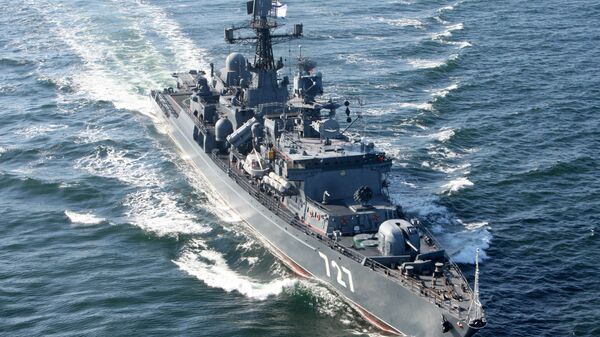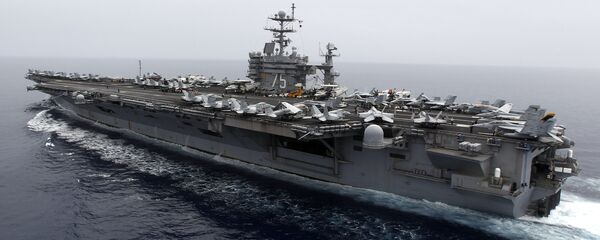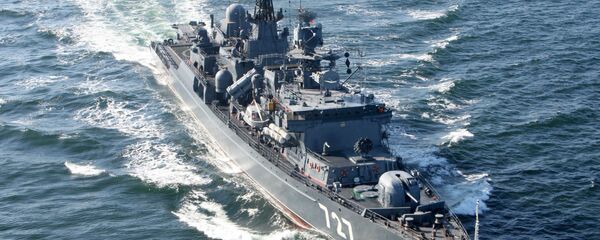"Similar incidents were frequent during the Cold War, then everything was seemingly calm for a while and now they are back," he noted. "The United States has carried out a policy of 'countering Russia' in all spheres. I think this incident was a clear provocation aimed at getting on the nerves of our seamen."
Lukanin compared the USS Gravely's maneuver to the way road hogs cut off a disciplined driver on a highway.
Lukanin mentioned that the US Navy's ship broke both written and unwritten rules of the maritime code of conduct. He singled out the Code for Unplanned Encounters at Sea (CUES) that was signed by 21 nations in 2014. CUES is meant to reduce the risk of maritime incidents, but the agreement is not legally binding.
"There is also the 1972 US-Soviet Incidents at Sea agreement meant to prevent dangerous encounters at open sea and airspace above. The deal does not provide specific distance requirements, but it stipulates that ships must maintain a safe distance so that they are not in each other's way," he detailed.
Lukanin pointed out that ships are incapable of changing course easily due to inertia. This is why these agreements were signed in the first place. "In this case these agreements were flagrantly violated," he noted.
The Pentagon has drastically increased its military presence in the region earlier this month. USS Gravely is part of a carrier strike group, led by the aircraft carrier USS Harry S. Truman that was deployed to the region to take part in Washington's anti-Daesh campaign. In addition, the USS Dwight D. Eisenhower has also been sent to the Mediterranean to launch strikes against the terrorist group.



